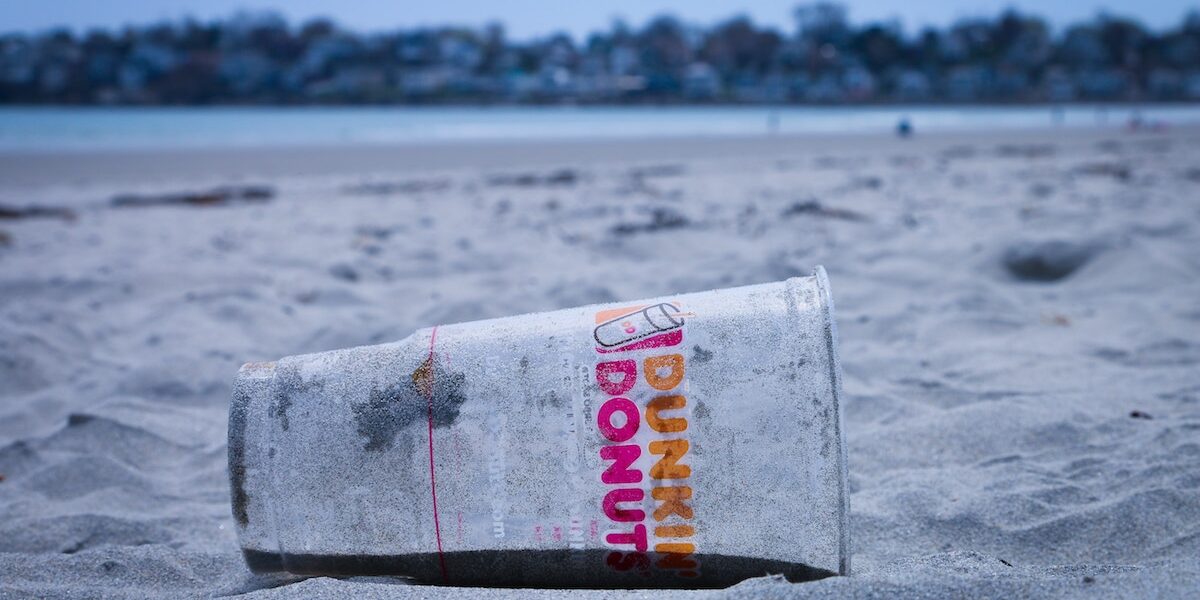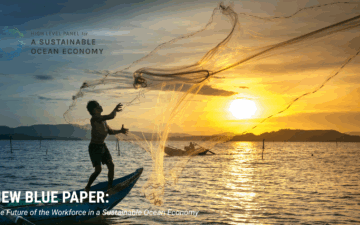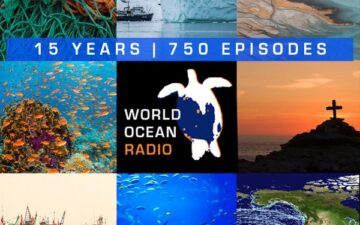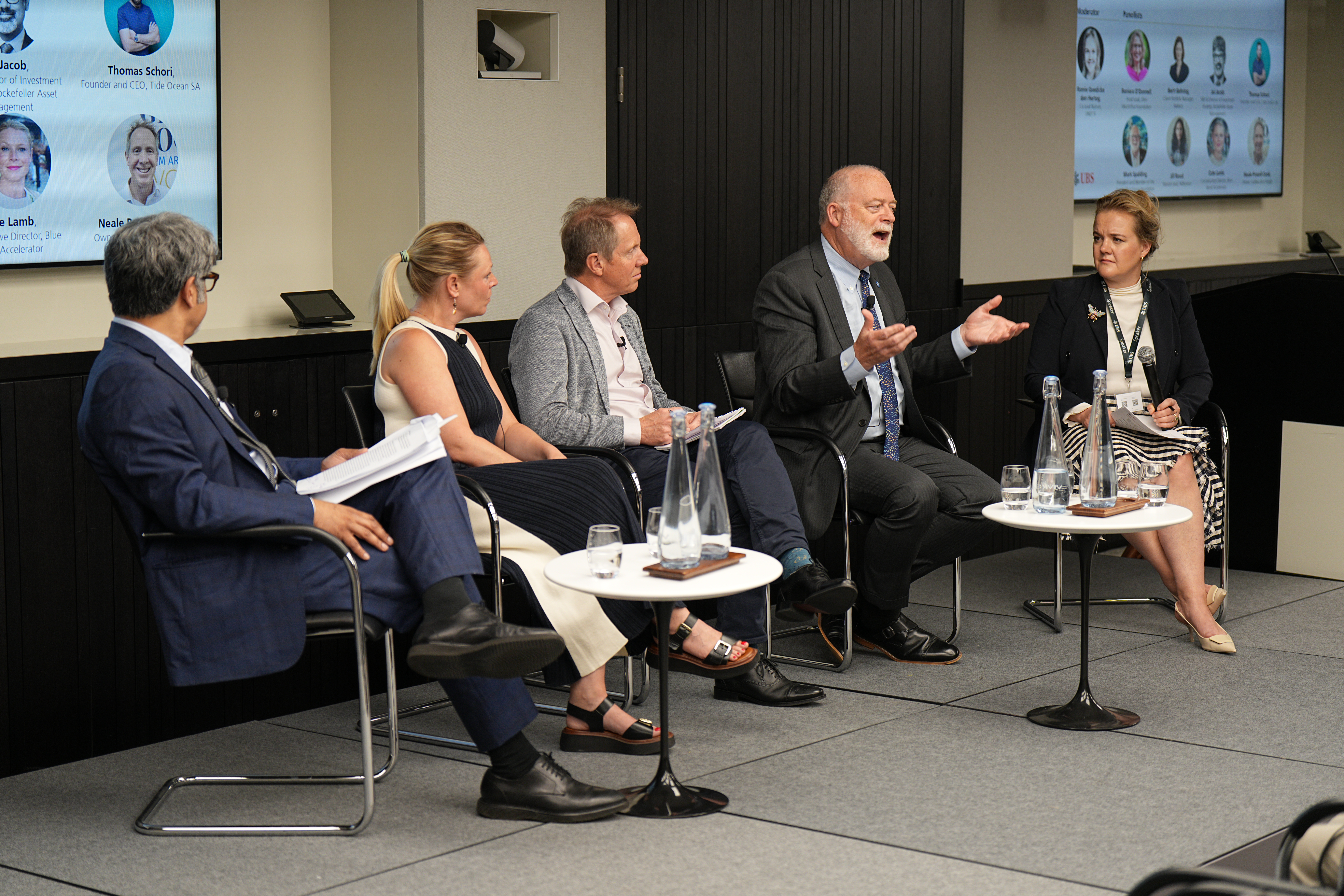By Mark J. Spalding, President, The Ocean Foundation This blog originally appeared on NatGeo’s Ocean Views
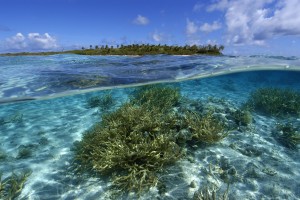
We once believed that the ocean was too big to fail, that we could take out as much fish, and dump in as much trash, debris and pollution as we wished. Now, we know we were wrong. And, not only were we wrong, we need to make it right. One good place to start? Stopping the flow of bad stuff going into the ocean.
We need to find the way that steers human interaction with the ocean and coasts toward a sustainable future by building a strong, vibrant and well-connected community of projects that effectively responds to the urgent issue of trashing our coasts and ocean.
We need to increase media and financial market coverage of the opportunities that restore and support the health and sustainability of the world’s coasts and ocean:
▪ so that public and investor awareness increases
▪ so that policymakers, investors and businesses increase their knowledge and interest
▪ so that policies, markets and business decisions change
▪ so that we transform our relationship with the ocean from abuse to stewardship
▪ so that the ocean continues to provide the things we love, and need, and want.
For those involved in travel and tourism, the ocean provides things the industry depends upon for livelihoods, and shareholder profits: beauty, inspiration, recreation and fun. Airlines, such as our innovative new partner JetBlue, fly its customers to beautiful beaches, (shall we call them blue vacations?), while we and our conservation-focused partners protect the blue. What if we could find the way to align interests and craft anew and unique economic business case driver to stop the mountains of trash that find its way into the blue, onto our beaches, and thus threatens livelihoods of the coastal communities and even the travel industry itself?
All of us have deep emotional connection to the coasts and ocean. Whether it is for stress relief, inspiration, and recreation, when we journey to the sea, we want it to live up to our fond memories or the beautiful photographs that inspired our choice. And we are disappointed when it does not.
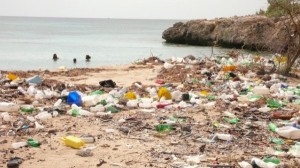
We have long believed a beach covered with litter and trash is less attractive, less appealing, and thus less likely to call us back to visit again and again. We remember the trash, not the sand, the sky, or even the ocean. What if we can prove that this belief is supported by evidence that shows how this negative impression affects the value of a beach community’s natural capital? What if there is evidence that airline revenue is affected by the quality of beaches? What if that evidence is specific enough to matter in financial reports? In other words, a value that can be quantified more precisely, with clearer effects, so that becomes more powerful leverage than just the social pressure brought by the well-meaning, and moves everyone off the sidelines and into the cleanup effort.
So, what if we develop a plan to protect marine natural resources, show the value of clean beaches and directly tie ecology and the importance of nature to the airline’s base measurement – what the industry calls “revenue per available seat mile” (RASM)? Will the industry listen? Will countries whose GDPs depend on tourism listen? JetBlue and The Ocean Foundation are going to find out.
We learn more every day about the incredible capacity of plastic and other trash to remain a threat to ocean systems and the animals within them. Every piece of plastic ever left in the ocean is still there—just in ever-smaller pieces that compromise the very core of the food chain. Thus, we think that the health and appearance of a tourism destination has a direct effect on revenue. If we can place an actual dollar value on this metric of healthy beaches, we hope it will highlight the importance of ocean conservation, and thus change our relationship with the coasts and ocean.
Please join us in hoping the New Year brings with it this disruptive business changing analysis that can lead to solutions at scale for an airline, and for countries dependent on tourism – because the coasts and ocean require our attention and care to be healthy. And, if the ocean is not healthy, neither are we.
